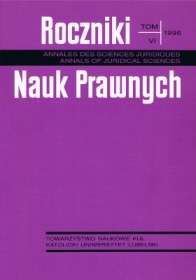Legal and Canonical Concept of Canonization in the Western Church
Abstract
Holiness is a theological concept based on the Old and the New Testaments as well as on the whole Tradition of the Church. Drawing on the theological concepts canonical law determines, by the act of canonization, that some persons have been granted canonized holiness, i.e. towards the Church (coram Ecclesia). The Church carries out an investigation having completed the process concerning the life, virtues or martyrdom or the ancient cult. This investigation, called a canonization process, has undergone a great evolution starting from the primitive forms of canonization, through translations (translatio), to the papal acts (decrees, bullae). In the course of history the requirements were made ever stricter, ending up with a troublesome casuistry. The latest reforms, starting from Pius XI (1930) through Paul VI (1969) to John Paul II (1983), have led to deprive this process of formalism, to support the whole procedure with some scientific elements, and to found the process of canonization on the conciliar principle of collegiality in the Church. In Polish literature we have not had any legal and canonical study on the concept of canonization. The enclosed bibliography and basing all the arguments on the original sources will help the reader to deepen some selected issues of interest concerning this topic.
Copyright (c) 1996 Roczniki Nauk Prawnych

This work is licensed under a Creative Commons Attribution-NonCommercial-NoDerivatives 4.0 International License.


